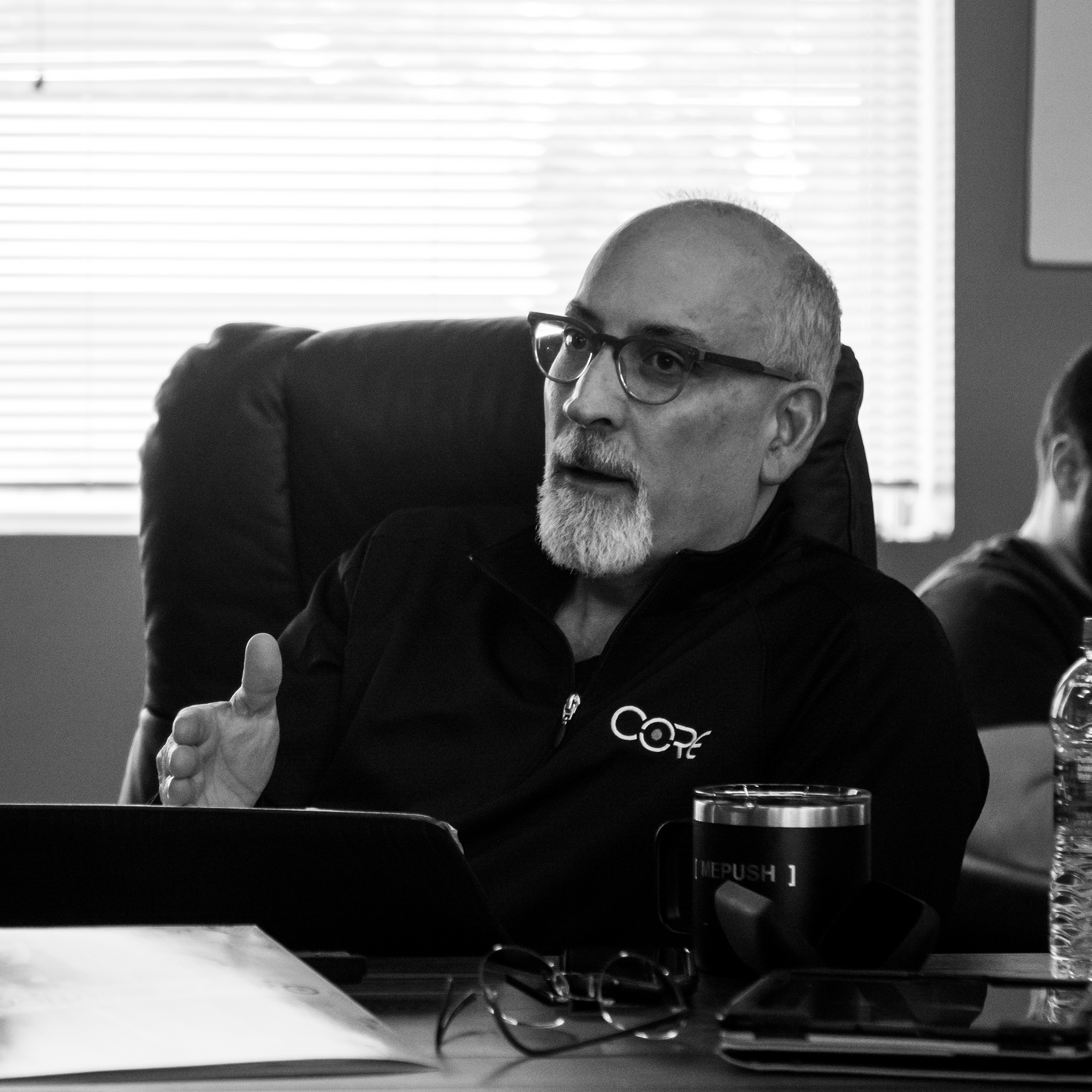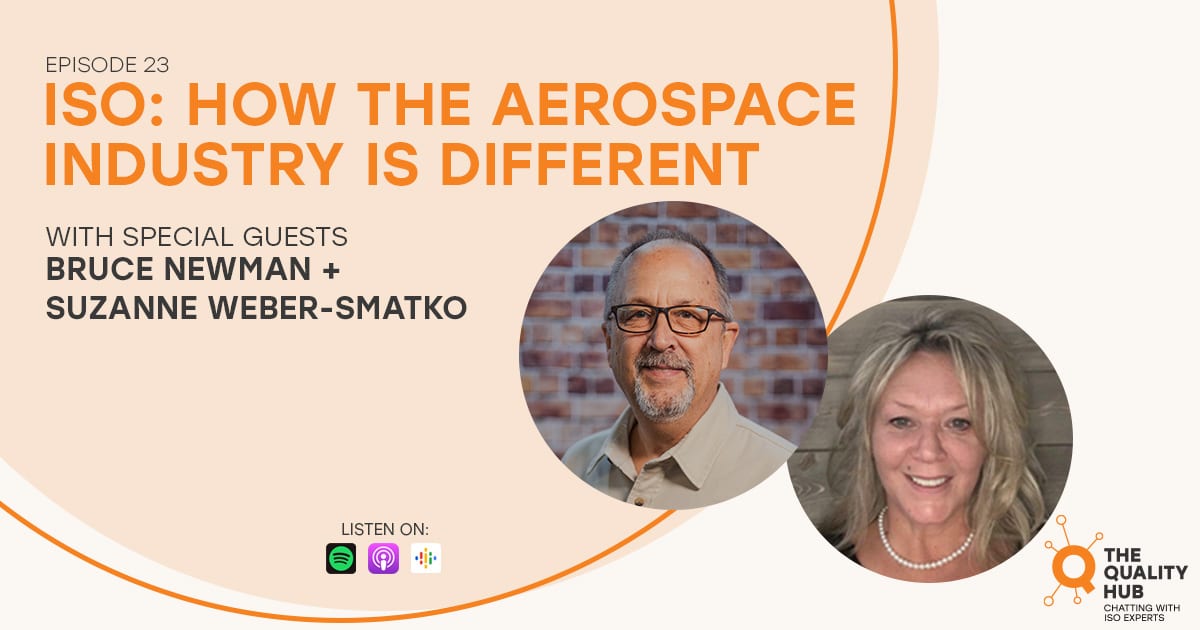AS9100 Clause 8 Explained
What is AS9100 Clause 8 About?
Clause 8 of AS9100 refers to the “Operation” section of the standard. This clause outlines the requirements for planning, production, and service provision within an aerospace quality management system.
Clause 8 of AS9100 Covers Aspects Such As:
Operational planning and control: This involves establishing processes to ensure that products and services meet customer requirements. It includes identifying resources, defining process criteria, and establishing controls.
Product realization:
This section focuses on the processes involved in transforming inputs into aerospace products or services. It covers everything from design and development to production, testing, and delivery.
Control of production and service provision:
This part of the clause requires organizations to establish controls to ensure that products and services meet quality requirements. It includes measures such as monitoring and measuring processes, verifying product conformity, and controlling non-conforming outputs.
Get a Free Quote
Identification and traceability:
This involves ensuring that products and their components can be identified and traced throughout the production process. It includes requirements for labeling, serialization, and documentation.
Customer property:
This section outlines requirements for handling and protecting customer-owned property, including materials, tools, and intellectual property.
Preservation of product:
This part of the clause requires organizations to establish measures to prevent damage or deterioration of products during production, storage, and delivery.
Clause 8 of AS9100 focuses on ensuring that organizations have effective processes in place to consistently deliver aerospace products and services that meet customer and regulatory requirements.
The AS9100 Clauses:
What is the Difference Between AS9100 Clause 8 and ISO 9001 Clause 8?
AS9100 Clause 8 and ISO 9001 Clause 8 share some similarities as they both pertain to the operation of a quality management system (QMS), but there are also notable differences, especially considering AS9100 is a specific standard for the aerospace industry while ISO 9001 is a more general quality management standard applicable across various industries.
Here are some key differences:
Industry Specificity:
AS9100 is tailored specifically for the aerospace industry, whereas ISO 9001 is a generic standard applicable to any organization, regardless of industry.
Additional Requirements in AS9100:
AS9100 includes additional requirements specific to aerospace, such as configuration management, risk management, and counterfeit parts prevention, which are not covered in ISO 9001.
Emphasis on Safety and Reliability:
Due to the critical nature of aerospace products, AS9100 places a greater emphasis on safety, reliability, and risk management compared to ISO 9001.
Regulatory Compliance:
AS9100 incorporates specific requirements related to regulatory compliance within the aerospace industry, such as adherence to aviation authorities’ regulations, whereas ISO 9001 focuses more broadly on meeting customer requirements and enhancing customer satisfaction.
Customer-Specific Requirements:
AS9100 often requires organizations to address customer-specific requirements more rigorously, reflecting the highly customized nature of aerospace products and services.
Product Realization:
While both standards address product realization processes, AS9100 may have more stringent requirements in areas such as design and development, production planning, and configuration management to ensure the safety and quality of aerospace products.
In summary, while both AS9100 Clause 8 and ISO 9001 Clause 8 cover similar aspects of operating a QMS, AS9100 includes additional requirements tailored specifically to the aerospace industry’s unique needs and regulatory environment.
How Does a Company Comply with AS9100 Clause 8?
Compliance with AS9100 Clause 8 requires a company to establish, implement, maintain, and continually improve an effective quality management system (QMS) that meets the requirements specified within the standard.
Here are the general steps a company would typically take to comply with AS9100 Clause 8:
Understand the Requirements:
Thoroughly review Clause 8 of the AS9100 standard to understand the specific requirements related to operational planning, product realization, and service provision.
Establish Processes:
Identify and establish processes within the organization for operational planning, product realization, and service provision. These processes should encompass activities such as planning, design and development, purchasing, production, testing, and delivery.
Document Procedures:
Document procedures for each process, including process criteria, responsibilities, methods, and resources required. Ensure that the documented procedures align with the requirements of AS9100 Clause 8 and are effectively communicated throughout the organization.
Implement Controls:
Implement controls to ensure that processes are carried out effectively and consistently. This may include establishing checkpoints, performing inspections, conducting audits, and implementing corrective and preventive actions as necessary.
Resource Allocation:
Allocate resources, including personnel, equipment, and infrastructure, to support the effective operation of processes and the achievement of quality objectives.
Training and Competence:
Ensure that personnel are adequately trained and competent to perform their assigned tasks. Provide training on relevant procedures, standards, and tools to enhance competency and awareness of quality requirements.
Monitoring and Measurement:
Establish mechanisms for monitoring and measuring key process parameters and product characteristics to ensure conformity to requirements. This may involve implementing performance indicators, conducting inspections, and collecting data for analysis.
Verification and Validation:
Verify and validate processes and products to ensure that they meet customer requirements and regulatory standards. This may involve conducting tests, inspections, and customer reviews to confirm compliance.
Control of Non-Conforming Outputs:
Establish procedures for identifying, documenting, and addressing non-conforming outputs. Implement corrective actions to address root causes and prevent recurrence of non-conformities.
Continuous Improvement:
Continually monitor and evaluate the effectiveness of the QMS and processes through internal audits, management reviews, and feedback from customers and stakeholders. Implement improvements to enhance the efficiency, effectiveness, and performance of the QMS.
By following these steps and implementing robust processes and controls, a company can demonstrate compliance with AS9100 Clause 8 and achieve certification to the standard.
Helpful Resources: AS9100 – AS9102 – How the Aerospace Industry is Different
AS9100 – AS9120 – How the Aerospace Industry is Different
Join us in this engaging podcast episode as host Xavier Francis sits down with ISO experts Suzanne Weber-Smatko and Bruce Newman. Delve into the intricate world of the AS9100 standards, where they unravel the unique attributes of AS9100/9120. Discover how AS 9100/9120’s laser focus on product safety, operational risks, and stringent supplier controls sets it apart in the aerospace sector. Listen Now.
Consulting Support for AS9100
Every year, we help hundreds of small businesses achieve AS9100 certification. Support for AS9100 is available through any of our Consulting Programs As an American business with a story like yours, we know that time is valuable. Our expert consultants are here to take on the difficult, technical aspects of certification so you can focus on your business. They’ll work with you every step of the way until you’re successfully certified. Interested? Get a Free Quote.
In many industries, AS9100 has become a requirement. When landing a big contract, AS9100 certification could make all the difference.

About Core Business Solutions
"Core Business Solutions was started by my brother, Mike Dawson, and myself, true entrepreneurs at heart looking for a better way to make a living and help small businesses improve the quality of the products and services they provide.
The bottom line: we are real people that have developed a team to come along side you to help you grow and succeed."
-- Scott Dawson, President
Related Standards
We provide consulting support for various other standards, as well as support for companies seeking multiple certifications through an Integrated Management System.
ISO 9001
Quality Management Systems
AS9120
Aerospace Distributors
ISO 14001
Environmental Management Systems
ISO 45001
OH&S Management Systems
ISO 9001
AS9120
ISO 14001
ISO 45001
Learn more about AS9100 at our articles page.
Equip Your Business to Meet AS9100 With CORE
At Core Business Solutions, we’re here to equip your company for success in meeting AS9100 requirements. We’ve helped hundreds of small businesses grow and deliver the best solutions to their clients. We provide ISO training services, consulting help, and compliance software to help you get certified and stay certified. We focus on optimizing your processes and helping you implement an ISO-compliant QMS. When you partner with us, you’ll get the tools and help you need for success. For more information on the AS9100 standard, please visit our articles page. You can also call our consulting office at 866-354-0300 or contact us online.


